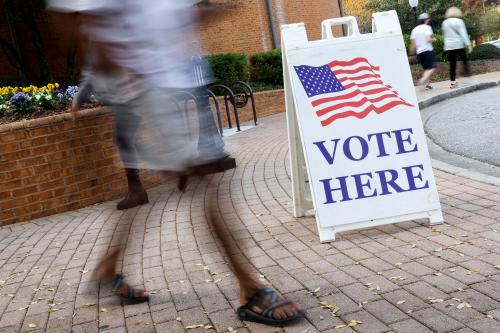The Supreme Court’s decision to reverse nearly fifty years of precedent and send the abortion issue back to the states sent shock waves throughout the country. During the summer months the implications of that decision were widely held to be helping the Democrats in what had been shaping up to be a dismal midterm election year. In some states voter registration of women surged. But by Labor Day the conventional wisdom had swung back. No, insisted most pundits, abortion wouldn’t drive many votes, but inflation would.
How wrong they were.
The first indication came early on election night in CNN’s exit polls. To the obvious surprise of the on-air talent, abortion came in a close second to inflation: 31% said inflation was their top issue but 27% said abortion was. Despite late pre-election polls showing abortion sinking to third or fourth place or disappearing, there are several reasons why the issue never really went away.
First, there are a lot of women in America, they are evenly distributed across the country, and they consistently vote more often than men—as the following table from our colleague Bill Frey here at Brookings illustrates.

This year was no different. According to CNN exit polls, women constituted 52% of the vote and men 48%. That is an enormous difference. Let’s assume that turnout in 2022 ends up being about the same as the record 2018 turnout—roughly 116 million votes. The women’s share of that vote? 60,320,000. Exit polls also show that 53% of women voted Democratic. That’s 31,969,600 votes—a big number. Hillary Clinton, who clearly shares our frustration with those who discounted the women’s vote, tweeted out the following clearly sarcastic comment: “It turns out women enjoy having human rights, and we vote.”
Apart from the sheer magnitude of the women’s vote is the issue of intensity. Unlike men, women spend a great deal of their lives thinking about reproduction. They have no choice. Even in the 21st century, pregnancy is still a dangerous business, and women’s health care is no place for government bureaucrats. No wonder that women think abortion is a lot more important than men do. As the election season entered its final stretch, and many Republican candidates got a crash course in obstetrics, some pulled back and/or softened their previous hard lines on abortion.
The importance of the issue was seen most clearly in the Senate debate in Pennsylvania. Although the Democrat, John Fetterman gave a halting performance because he was still recovering from a serious stroke, his opponent, Republican Mehmet Oz, managed to make what had to be one of the most damaging comments on abortion ever: “I want women, doctors, and local political leaders…” to make these decisions.
The sheer absurdity of that comment went a long way towards distracting voters from the issue of Fetterman’s health and reminded many that government shouldn’t be making those decisions.
Finally, abortion is fundamentally different from inflation. Inflation is unpopular with both parties—there is no pro-inflation and anti-inflation party. In fact, if we’ve learned anything about politics in our polarized time it’s that voters see almost all issues through their partisan lens. Democrats worried about inflation could think that Joe Biden was dealing with it and Republicans that Joe Biden caused it. But abortion is different. One party is clearly in favor of keeping it legal in most or all circumstances and the other is not.
If you put together the sheer size of the women’s vote, the intensity of the issue and the fact that, unlike inflation or the economy, the two parties have stark differences on the issue, you get a powerful driver of the vote. There were five states with abortion referenda on the ballot and in every single one—including the deep red state of Kentucky—the pro-choice position won. In Michigan, where the abortion referendum won by 13.4 percent, it is not far-fetched to assume that it helped the Democrats keep several congressional seats. And in Pennsylvania, where abortion topped inflation by 9 points, Democrats picked up the only Senate seat so far.
The following table shows the percentage of voters in each of the crucial states and how they rated inflation and abortion. In most cases abortion was a close second; in Michigan and Pennsylvania it was far ahead of inflation.
TOP ISSUES IN THE 2022 MIDTERMS (%)
| Location | Inflation | Abortion | Crime |
| Arizona | 36 | 32 | 6 |
| Georgia | 37 | 26 | 13 |
| Michigan | 28 | 45 | 6 |
| Nevada | 36 | 28 | 11 |
| New Hampshire | 36 | 35 | 5 |
| Pennsylvania | 28 | 37 | 11 |
| Wisconsin | 34 | 31 | 12 |
| NATIONAL | 31 | 27 | 11 |
*Results according to CNN exit polls
Central to the story of the 2022 midterms, then, is an issue central to women’s lives, powerful enough to snatch victory from the Republicans, and durable enough to send a message about the future.
The Brookings Institution is committed to quality, independence, and impact.
We are supported by a diverse array of funders. In line with our values and policies, each Brookings publication represents the sole views of its author(s).









Commentary
It wasn’t just “the economy stupid”—it was abortion
November 10, 2022